Scientists and dignitaries celebrate 7 decades of CU Boulder in space
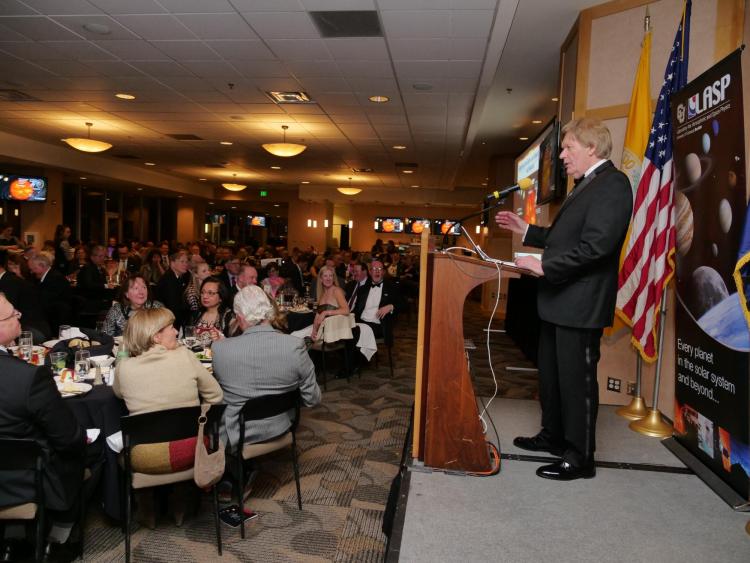
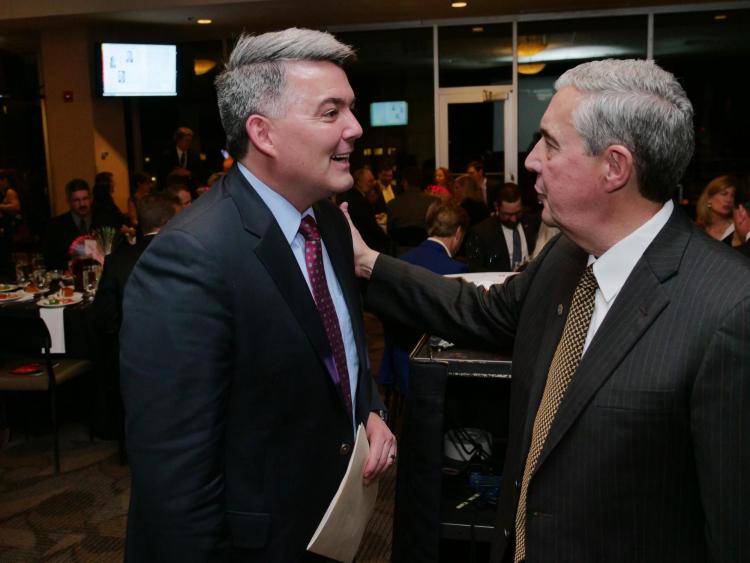
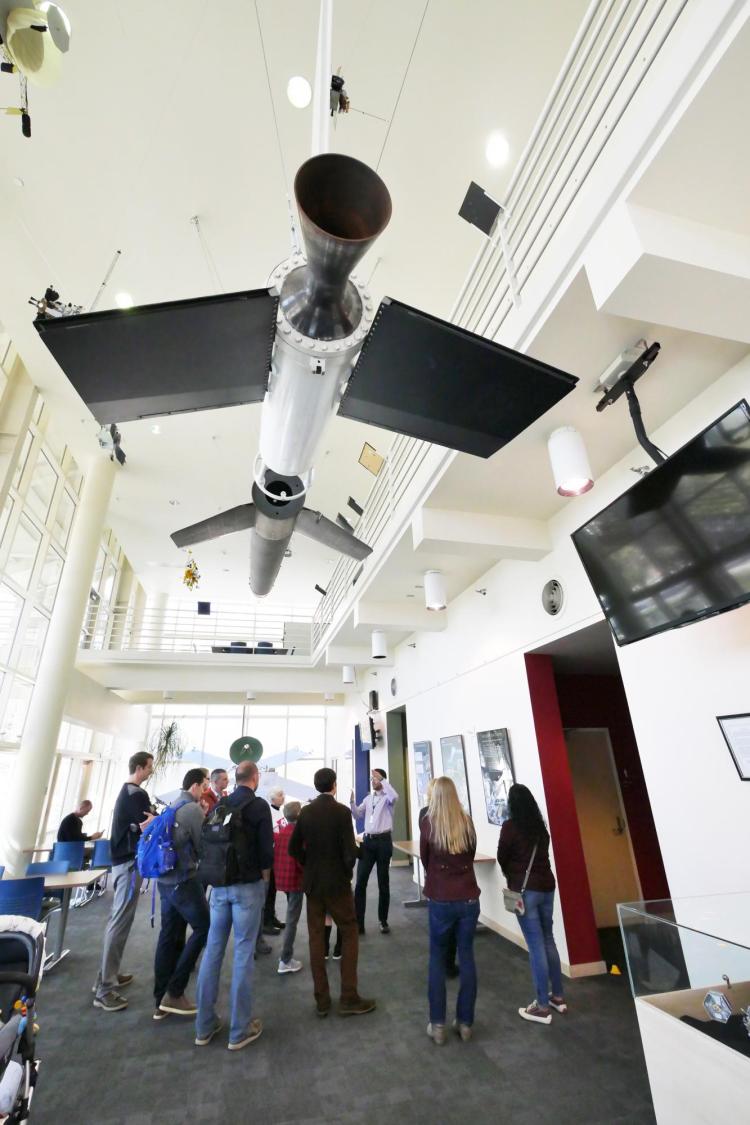
Banner image: An engineer works in a clean room at LASP. (Credit: Casey Cass/CU Boulder)
In 1948, William Pietenpol, the chair of physics at the University of Colorado, assembled a team of scientists and engineers for an ambitious venture: to launch an Aerobee rocket into the upper reaches of Earth’s atmosphere and collect new observations of the ultraviolet radiation emanating from the sun.
Just over 70 years later, dignitaries from Colorado and beyond gathered at a gala event on March 1 to mark the anniversary of that first rocket team—the beginnings of what would become CU Boulder’s Laboratory for Atmospheric and Space Physics (LASP).
The guest of honor at this gala, held at the Byron R. White Stadium Club at Folsom Field, was NASA Deputy Administrator James Morhard. He was joined by U.S. Sen. Cory Gardner, U.S. Rep. Ed Perlmutter, Colorado Lt. Gov. Dianne Primavera, Regents Sue Sharkey and Jack Kroll and Chancellor Philip DiStefano in toasting LASP’s success.
The research institute is the only body of its kind that has sent scientific instruments to all eight planets in the solar system, plus Pluto, the sun and a host of moons.
Daniel Baker, director of LASP, spoke at the event about the early days of the institute—when, he said, the university was just a “little house on the prairie.”
“And, of course, things have grown quite a bit from that time,” Baker said. “Today, I’m so proud of the fact that LASP is part of this ecosystem here on the Front Range.”
Chancellor DiStefano echoed that enthusiasm.
“The University of Colorado Boulder is proud of LASP’s long history of space exploration,” DiStefano said. “This is all made possible by the importance of NASA’s investment in fundamental scientific research at universities, like CU Boulder, which is among the top NASA research recipients among public universities. This investment is critical to the next generation of science discoveries, commercialization opportunities and for developing the workforce talent pipeline that Colorado and the nation need.”
But the event focused on more than growth and history. In his own remarks, Morhard described the future of space exploration in the United States, including NASA’s current race to return Americans to the moon by the 2020s.
“We are in the early steps of a journey that leads astronauts into deep space for sustainable exploration and leads the science and engineering communities to new heights of discovery,” said Morhard, who was making his first official visit since stepping into his leadership role at NASA five months ago.
Watch the livestream of remarks at the LASP 70th anniversary event.
Small and fast
For LASP, there have been many heights of discovery along the way. Pietenpol and his team—then called the Upper Air Laboratory, or “Rocket Project”—succeeded in launching their rocket from White Sands Proving Ground in New Mexico in 1951.
A slideshow playing at Friday’s gala ticked off the institute’s achievements in the decades following.
LASP played a critical role, for example, in the Mariner 9 mission, the first spacecraft to orbit Mars. Instruments designed in Colorado are still riding onboard Voyager 1 and 2, satellites that were launched in 1977 and have since pushed past the boundaries of Earth’s solar system.
Some things, however, in science never change, as Baker joked in his remarks: physicists aren’t “any better dressed than they were 70 years ago.”
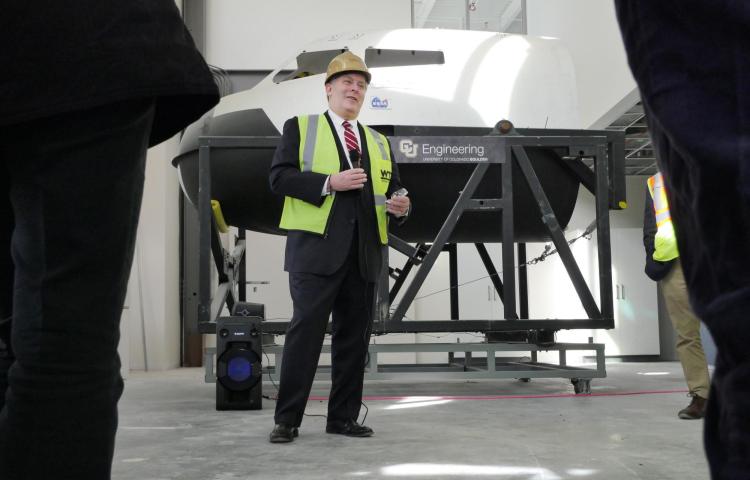
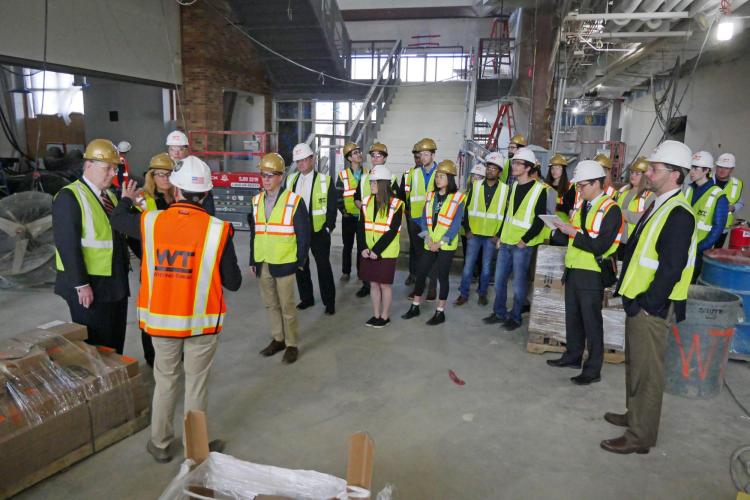
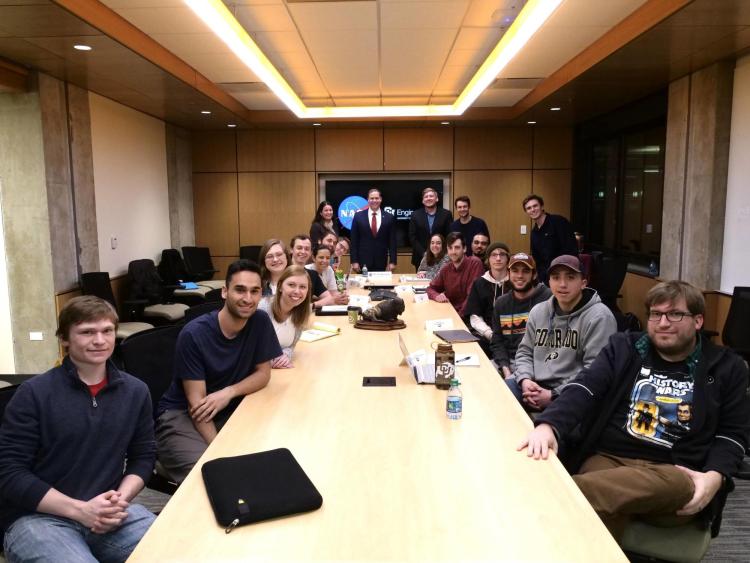
Fran Bagenal, a professor at LASP, thinks it’s important to look back on the early days of space science at CU Boulder—bad clothes and all. When she first joined the research institute 26 years ago, she said that researchers at LASP worked with small budgets, small satellites and a “can-do attitude.”
LASP has channeled that same spirit in its current work with “CubeSats,” Bagenal said. They are satellites that are about the size of a toaster oven and can be built for a fraction of the cost of a major NASA mission. CU Boulder has launched nine of these wee scientific instruments into space to date, with another four slated for the near future.
“It’s a useful perspective … to look back and think about how we can leap-frog forward,” Bagenal said.
What’s next?
Leap-frogging was the topic of conversation earlier in the week. On Thursday night, NASA Administrator Jim Bridenstine met with students in a space politics course on campus.
And on Friday morning, Morhard joined Bobby Braun, dean of the College of Engineering and Applied Science, in a dusty adventure—a tour of the construction site for the future home of the Ann and H.J. Smead Department of Aerospace Engineering Sciences, which will open this summer.
“This building will serve as a hub for the workforce of Colorado’s future aerospace industry, and will be a central part of the new ‘Aerospace Alley’ on campus,” Dean Braun said.
Donning a hard hat and standing below a model of a Dream Chaser spacecraft, a gift from the Sierra Nevada Corp., Morhard answered questions from more than a dozen CU Boulder students.
Michelle Lin, a sophomore studying aerospace, was part of that cluster. She’s currently working on a project funded by NASA through the university’s bioastronautics program.
“That’s really cool that they are visiting,” said Lin, who was also one of five students at CU Boulder to land a prestigious Brooke Owens Fellowship this year. “I get to kind of see who I’m working for.”
And Morhard had words of encouragement for future space explorers like her.
“We’re going to low-Earth orbit. We’re to going the moon, and we’re going to Mars and other planets,” he said. “The logistics that that entails are so technical and complex, and you all are going to be making the decisions on how we do that.”
Lin, at least, is game: “I hope to go to Mars someday,” she said.


